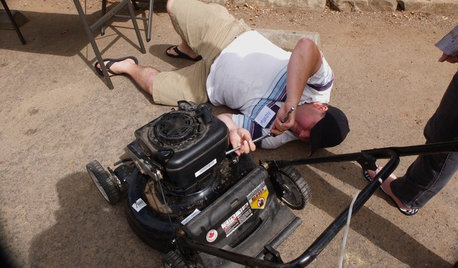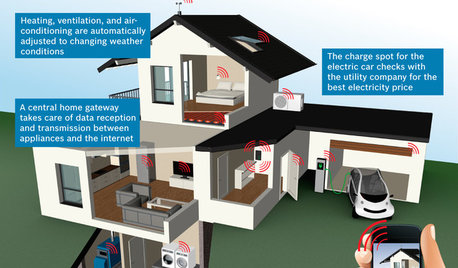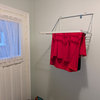New gov't regulations for washers coming
knot2fast
11 years ago
Related Stories

MOST POPULAROvernight Guests Coming? How to Be a Great Host
Ensure a good time for all — including yourself — by following these steps for preparing for and hosting houseguests
Full Story
MODERN HOMESHouzz Tour: Cape Cod’s Midcentury Modern Tradition Comes to Life
A new home nestled in the Cape Cod National Seashore area balances architectural history and modern technology
Full Story
EVENTSDon't Throw Away Another Household Item Before Reading This
Repair Cafe events around the world enlist savvy volunteers to fix broken lamps, bicycles, electronics, small appliances, clothing and more
Full Story
HOUSEKEEPINGHow to Wash Your House
Avoid damage to siding and plants while getting your home's exterior shining clean, with this guide to using pressure washers and hoses
Full Story
THE HARDWORKING HOMECES 2015: Inching Toward a Smarter Home
Companies are betting big on connected devices in 2015. Here’s a look at what’s to come
Full Story
GREAT HOME PROJECTSHow to Switch to a Tankless Water Heater
New project for a new year: Swap your conventional heater for an energy-saving model — and don’t be fooled by misinformation
Full Story
LIFEHow to Prepare for and Live With a Power Outage
When electricity loss puts food, water and heat in jeopardy, don't be in the dark about how to stay as safe and comfortable as possible
Full Story
MATERIALSInsulation Basics: What to Know About Spray Foam
Learn what exactly spray foam is, the pros and cons of using it and why you shouldn’t mess around with installation
Full Story
MOST POPULAR5 Ways to Hide That Big Air Conditioner in Your Yard
Don’t sweat that boxy A/C unit. Here’s how to place it out of sight and out of mind
Full Story
DECORATING GUIDES12 Tips for Living Well in Your Loft or Studio
Short on storage? No separate bedroom? Here's how to maximize space and turn your loft or studio into a home that suits you to a T
Full StorySponsored
Industry Leading Interior Designers & Decorators in Franklin County
More Discussions








asolo
sandy1616
Related Professionals
Albany Kitchen & Bathroom Designers · St. Louis Kitchen & Bathroom Designers · Sun City Kitchen & Bathroom Designers · Champlin Kitchen & Bathroom Remodelers · Elk Grove Kitchen & Bathroom Remodelers · Luling Kitchen & Bathroom Remodelers · Pico Rivera Kitchen & Bathroom Remodelers · Saint Helens Kitchen & Bathroom Remodelers · East Saint Louis Cabinets & Cabinetry · Hopkinsville Cabinets & Cabinetry · Auburn Flooring Contractors · Boca Raton Flooring Contractors · East Palo Alto Flooring Contractors · Franklin Flooring Contractors · Land O' Lakes Flooring Contractorsasolo
knot2fastOriginal Author
deeageaux
asolo
doral_gw
asolo
Cavimum
elbits
knot2fastOriginal Author
kateskouros
doral_gw
deeageaux
mark40511
mrb627
sandy1616
kerbosch
asolo
fahrenheit_451
sandy1616
rainy5
nerdyshopper
kerbosch
sandy1616
asolo
sandy1616
suburbanmd
dadoes
suburbanmd
caryscott
lazy_gardens
nerdyshopper
sandy1616
curiousshopper
Cavimum
whirlpool_trainee
whirlpool_trainee
Cavimum
Cavimum
sandy1616